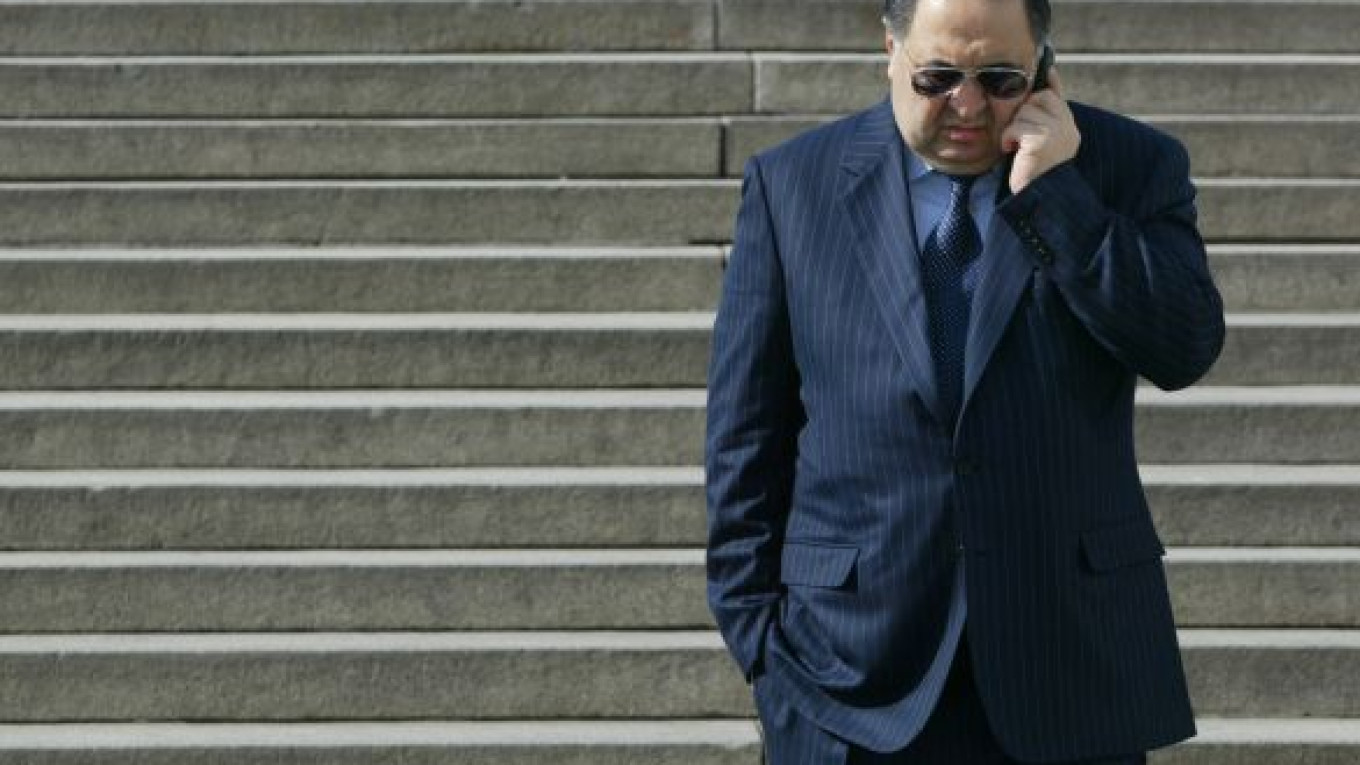Mobile phone operator Megafon has decided to buy a high-speed Internet provider for $1.2 billion in a bid to cement its lead in the expanding wireless services segment.
Control in both companies belongs to Russia's richest businessman, Alisher Usmanov, but the deal will put London-listed Megafon in a better position to plot the future course of their joint wireless operations.
Megafon, in which Usmanov's Garsdale group holds slightly more than 50 percent, is to purchase Scartel, where the group owns 82 percent, according to a Megafon statement Thursday. The telecom companies have already been partners, which allowed Megafon to secure a lead in selling services based on the so-called Long Term Evolution, or LTE, technology, by using Scartel's facilities — the country's only existing LTE network.
"There is an understanding that they need to develop the network together," said Konstantin Belov, a telecoms analyst at investment bank Uralsib. "It's easier to do if the companies merge."
Megafon and two other mobile phone operators, MTS and VimpelCom, received their LTE licenses only in July 2012, two months after Megafon had begun providing the service in Moscow in partnership with Scartel, which operates under the Yota brand.
Megafon, MTS and VimpelCom, often referred to as the Big Three, saw their mobile Internet traffic rise by 36 percent last year, MTS said in a recent report. LTE provides faster connection than the third-generation technology that is common now.
"We believe in the mass popularity of this product in the future and we are clearly betting on it, including with this deal," Megafon chief Ivan Tavrin said about LTE, Reuters reported. "This is why we will do everything to be a leader in this sector."
Megafon's statement to announce the deal was formally a recommendation from the company's board of directors to its shareholders to do so. But the purchase is assured because Swedish shareholder TeliaSonera, which has a blocking stake of 25.2 percent, intends to vote for the transaction at a shareholder meeting Sept. 12, the statement said.
The terms of the deal stipulate that Megafon will pay for Scartel in two installments on a deferred basis. Half of the? money will change hands on the first anniversary of the deal's closing, and the rest on the second anniversary.
Megafon is also assuming Scartel's debt of $600 million.
Bank of America Merrill Lynch analysts said in a research note that the overall price was in line with market expectations.
The purchase will not affect Megafon's dividend policy, the company's statement said.
Both Megafon and Scartel are part of Garsdale, in which Usmanov owns 82 percent. State corporation Rostec and Scartel founders Sergei Adonyev and Albert Avdolyan own the remainder of Garsdale.
Also on Thursday, Megafon recorded second-quarter earnings which were better than expected. Profit came in at 13.6 billion rubles ($412 million) compared with a Reuters poll forecast of 12.4 billion rubles and 1.7 billion rubles a year ago, which was hurt by a foreign exchange loss.
Revenue rose 8.4 percent to 72.2 billion rubles, above the average forecast of 71.7 billion rubles.
Contact the author at medetsky@imedia.ru
A Message from The Moscow Times:
Dear readers,
We are facing unprecedented challenges. Russia's Prosecutor General's Office has designated The Moscow Times as an "undesirable" organization, criminalizing our work and putting our staff at risk of prosecution. This follows our earlier unjust labeling as a "foreign agent."
These actions are direct attempts to silence independent journalism in Russia. The authorities claim our work "discredits the decisions of the Russian leadership." We see things differently: we strive to provide accurate, unbiased reporting on Russia.
We, the journalists of The Moscow Times, refuse to be silenced. But to continue our work, we need your help.
Your support, no matter how small, makes a world of difference. If you can, please support us monthly starting from just $2. It's quick to set up, and every contribution makes a significant impact.
By supporting The Moscow Times, you're defending open, independent journalism in the face of repression. Thank you for standing with us.
Remind me later.


